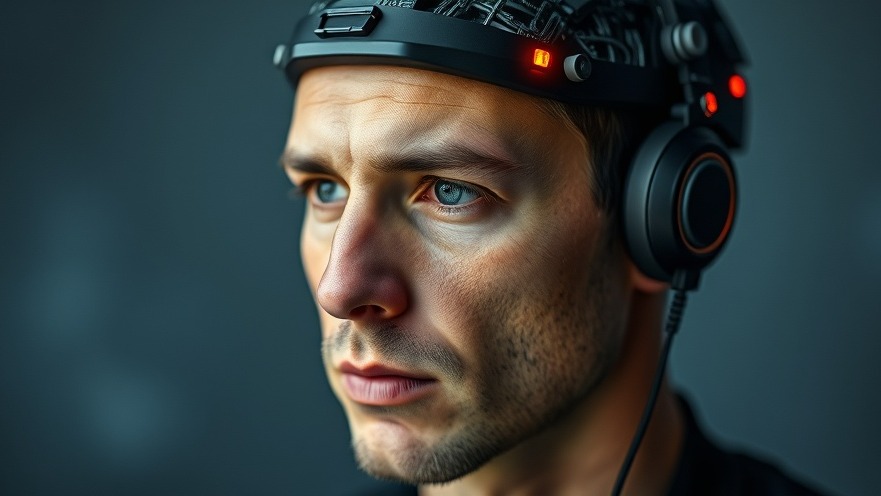
Revolutionizing Epilepsy Care with Tailored Brain Stimulation
The latest advancements in neuromodulation offer promising new treatment options for individuals grappling with drug-resistant epilepsy. Research conducted at the Mayo Clinic reveals a deep brain stimulation (DBS) system that ingeniously utilizes artificial intelligence to manage seizures more effectively, while also enhancing aspects of cognitive health like memory and sleep. With around 50 million individuals worldwide living with epilepsy, these findings could transform patient care for millions.
Understanding Drug-Resistant Epilepsy
Epilepsy is a complex neurological disorder characterized by abnormal brain activity causing seizures that can disrupt daily life. For many patients, traditional medications fail to control seizure episodes, rendering them 'drug-resistant.' This condition underscores the urgent need for innovative and effective therapies. The Mayo Clinic's research shines a light on this challenge, presenting a DBS system aimed at precisely tuning stimulation based on real-time brain activity.
How the New DBS Platform Works
The DBS system developed by the Mayo Clinic researchers continuously monitors a patient’s brain activity using a cloud-based platform. According to Gregory Worrell, M.D., Ph.D., the co-lead author of the study, the investigational device utilizes low-frequency stimulation to significantly reduce seizure frequency, but crucially, it also enhances memory and sleep quality among patients. This indicates not only a therapeutic approach to epilepsy but also a comprehensive strategy addressing associated cognitive and emotional issues.
The Role of Artificial Intelligence in Epilepsy Treatment
What makes this DBS platform stand out is its integration of artificial intelligence. By leveraging real-world data collected from the patients, including behavioral and cognitive metrics, the system allows healthcare providers to fine-tune stimulation parameters in real time. This proactive approach could surpass traditional methods using patient-reported diaries, which are often inconsistent and unreliable.
Impact of Continuous Monitoring
As detailed in the research findings, five patients treated with this novel approach exhibited a marked improvement in not just seizure management, but also in cognitive functions essential for daily living. This continuous monitoring and assessment create a nuanced understanding of a patient's needs, suggesting a future where epilepsy management is tailored uniquely to each individual's profile.
Wider Applications for Neurotechnology
While the immediate focus of this technology is on epilepsy, the implications of this research extend far beyond seizure management. The principles behind this tailored approach could be adapted for various neurological and psychiatric disorders, opening the door for a multitude of interventions driven by real-time data and artificial intelligence.
What This Means for Health Practitioners
For professionals in the healthcare space, staying attuned to such advancements is essential. The ability to offer cutting-edge, personalized care not only enhances patient outcomes but also positions practices at the forefront of medical innovation. Understanding technologies like the DBS platform can catalyze conversations surrounding patient treatment options and ultimately lead to improved health strategies.
Addressing Patient Concerns
Every medical innovation comes with questions regarding safety and efficacy. Potential patients may wonder about the risks associated with implanted devices or concerns around how personal data is utilized. It's crucial for health practitioners to engage in open dialogue about these topics, ensuring that patients feel informed and secure about any treatment options.
Concluding Thoughts
The promising results from the Mayo Clinic's research on tailored brain stimulation devices signal a new era for epilepsy treatment. By integrating technologies like artificial intelligence into clinical practice, health professionals can provide more effective and nuanced care. To stay ahead in the evolving landscape of neuromodulation, practitioners must remain current with these trends and be prepared to offer patients options that prioritize not just prevention of seizures but enhancement of overall cognitive function.
As medical technology continues to advance, it is incumbent upon healthcare providers to embrace these changes and incorporate valuable insights into their practices. The future of epilepsy treatment looks bright, and staying informed is key to making the most of it.
 Add Row
Add Row  Add
Add 




Write A Comment